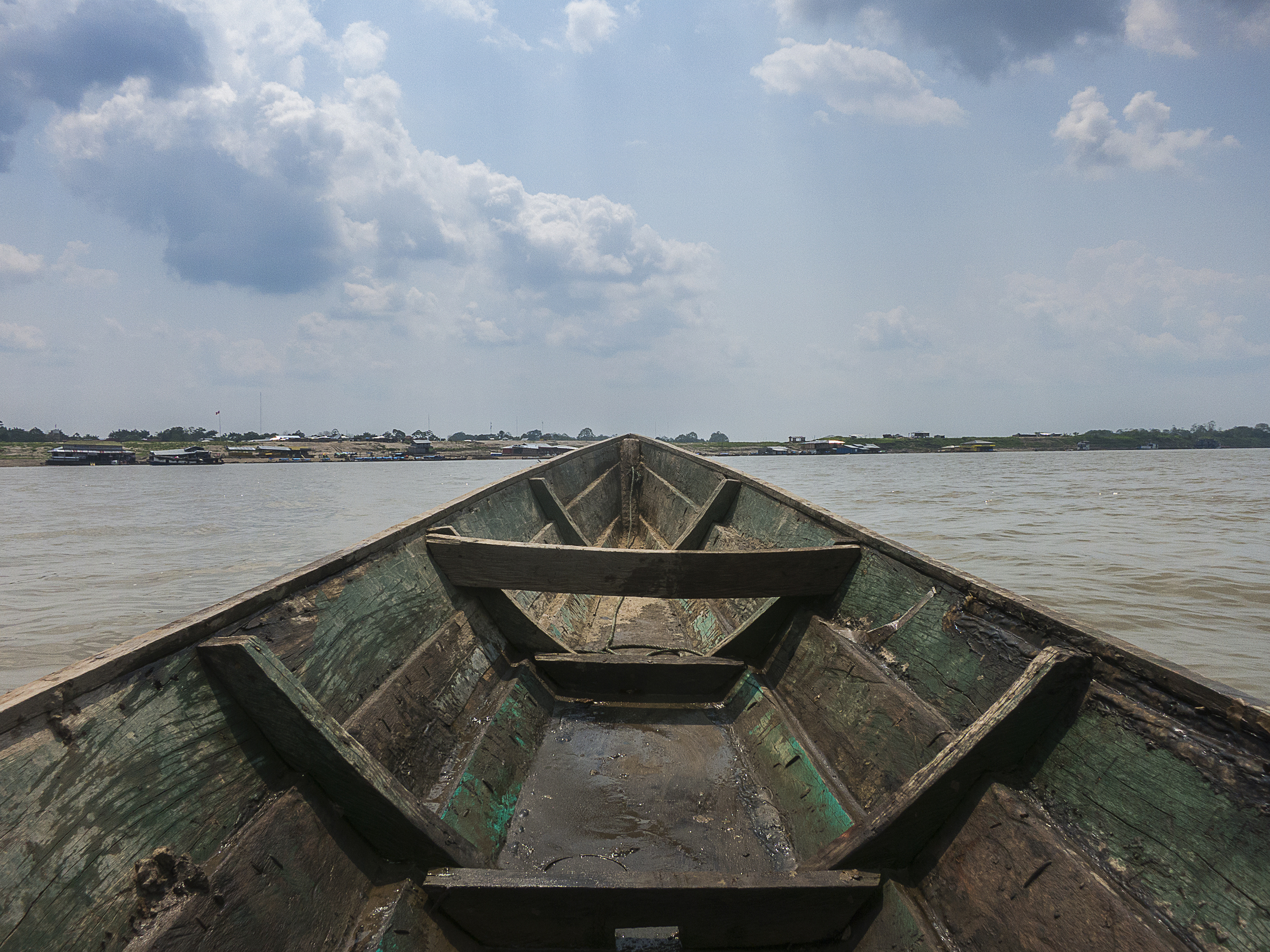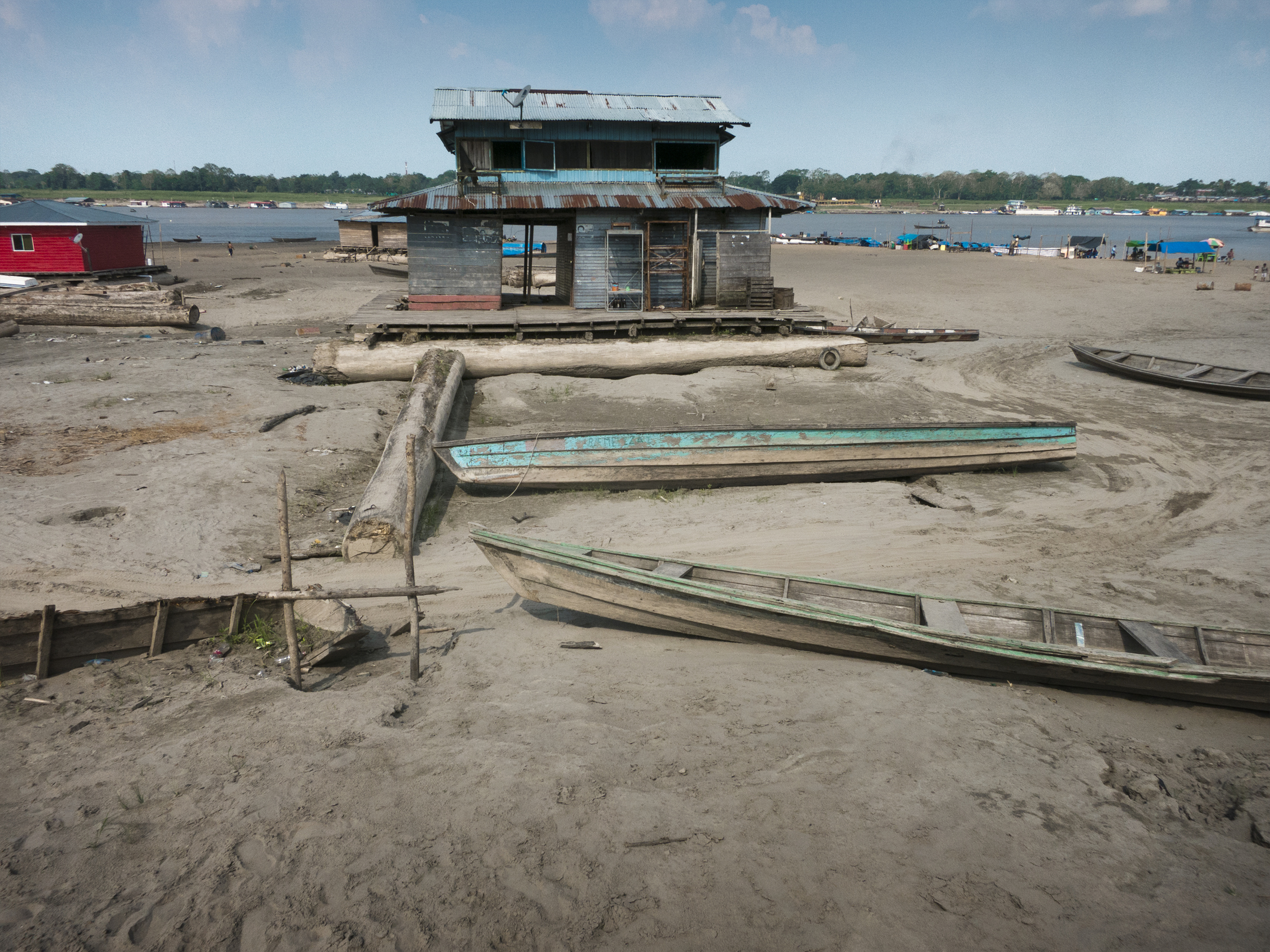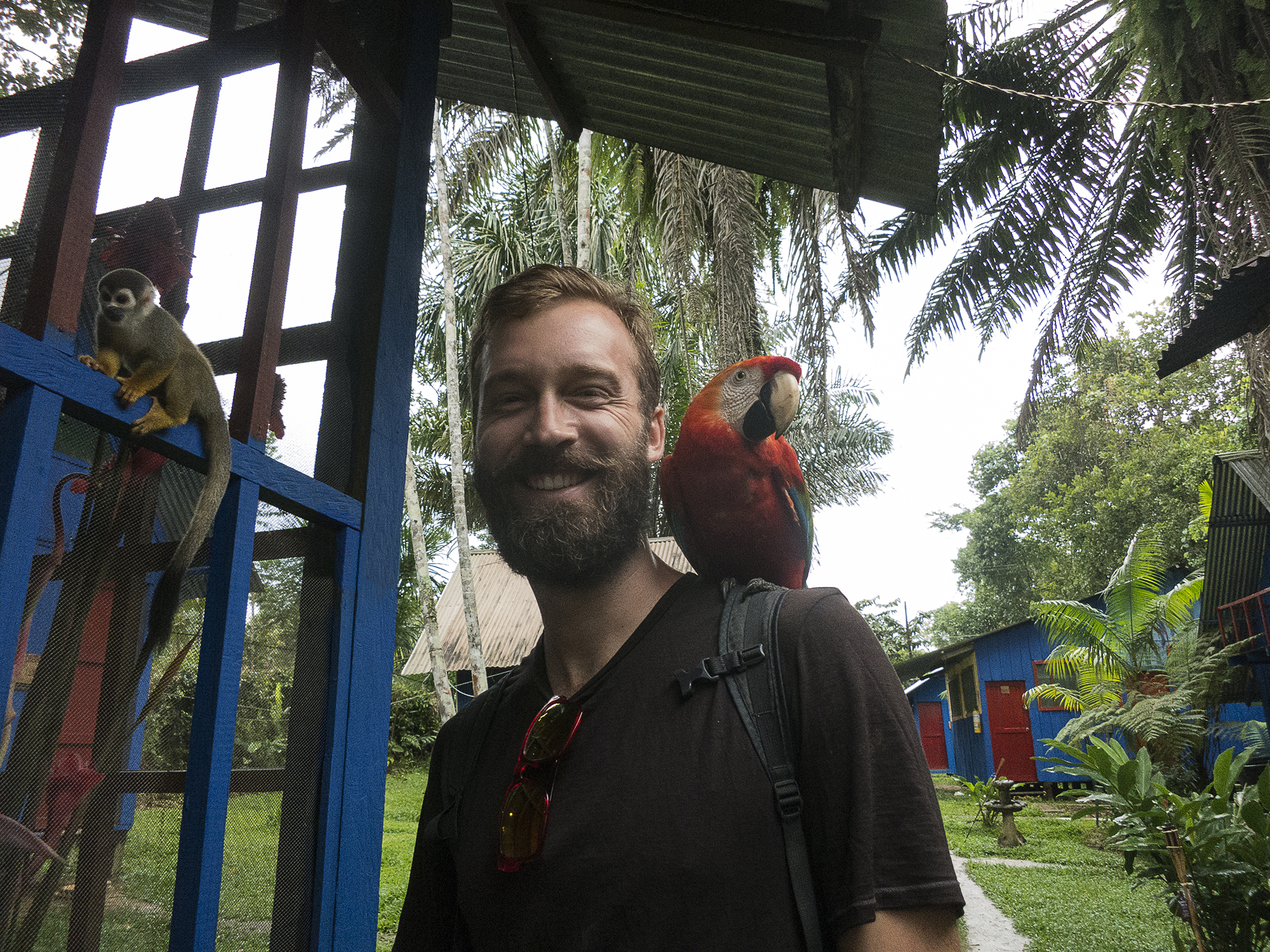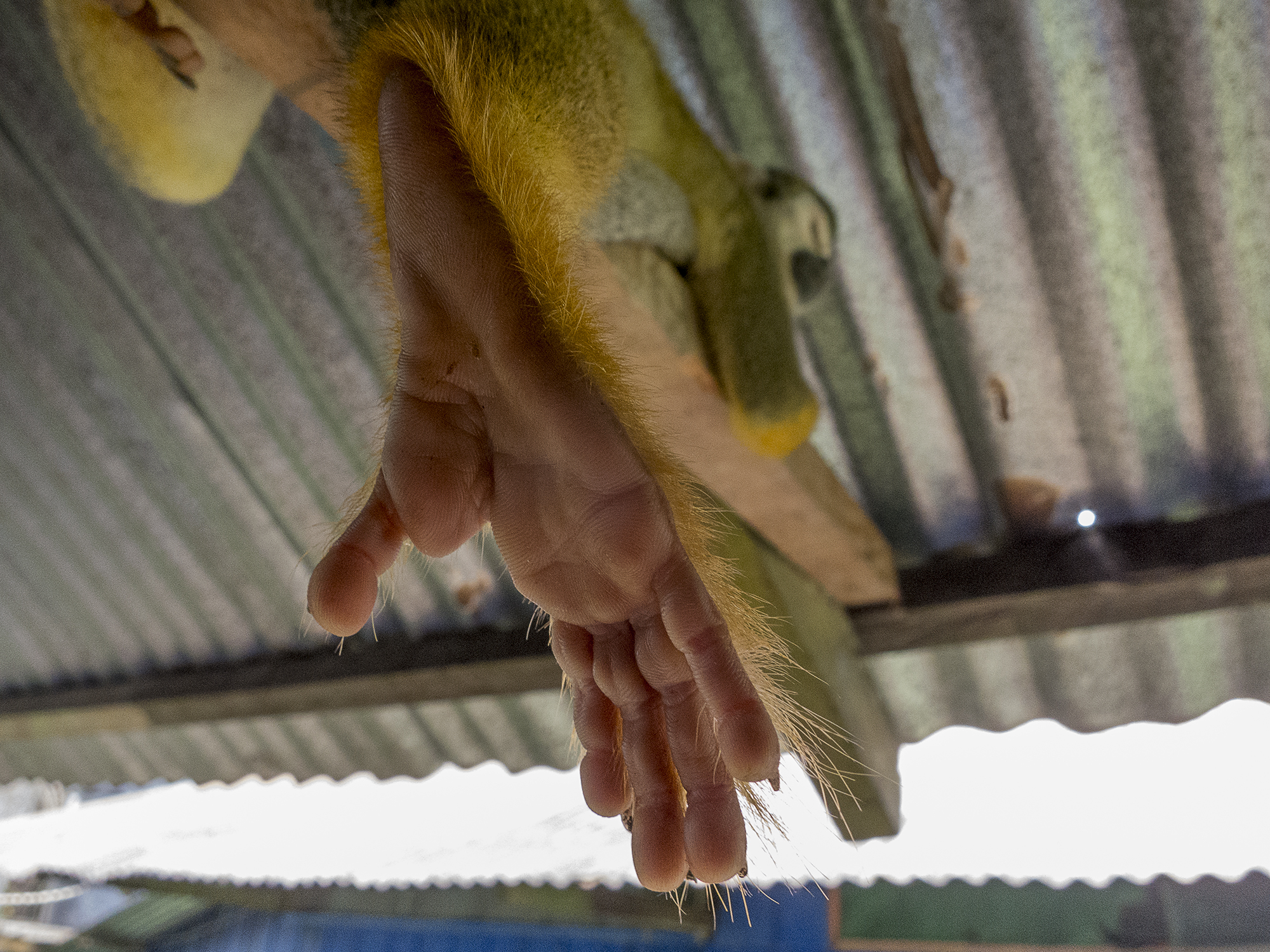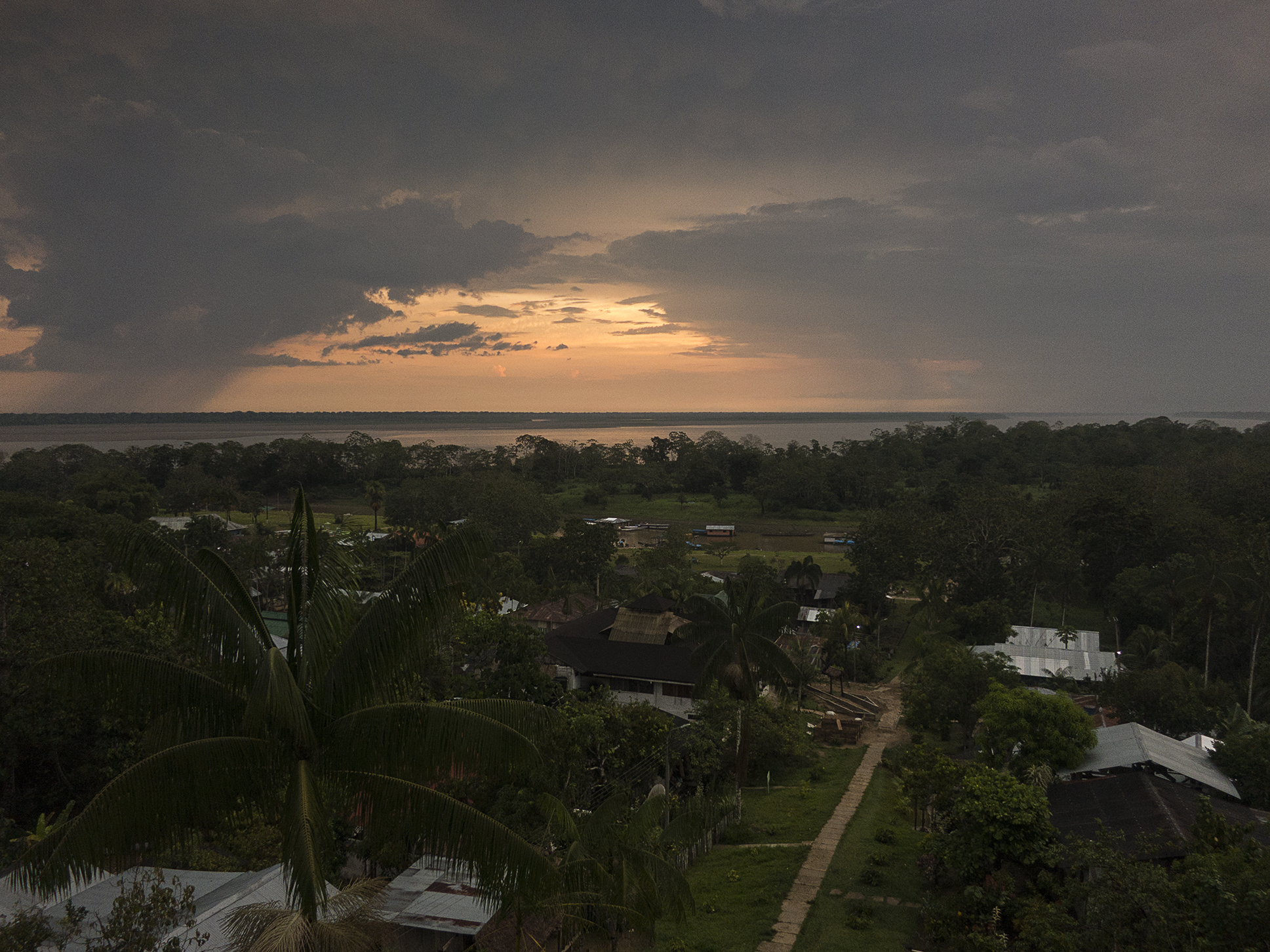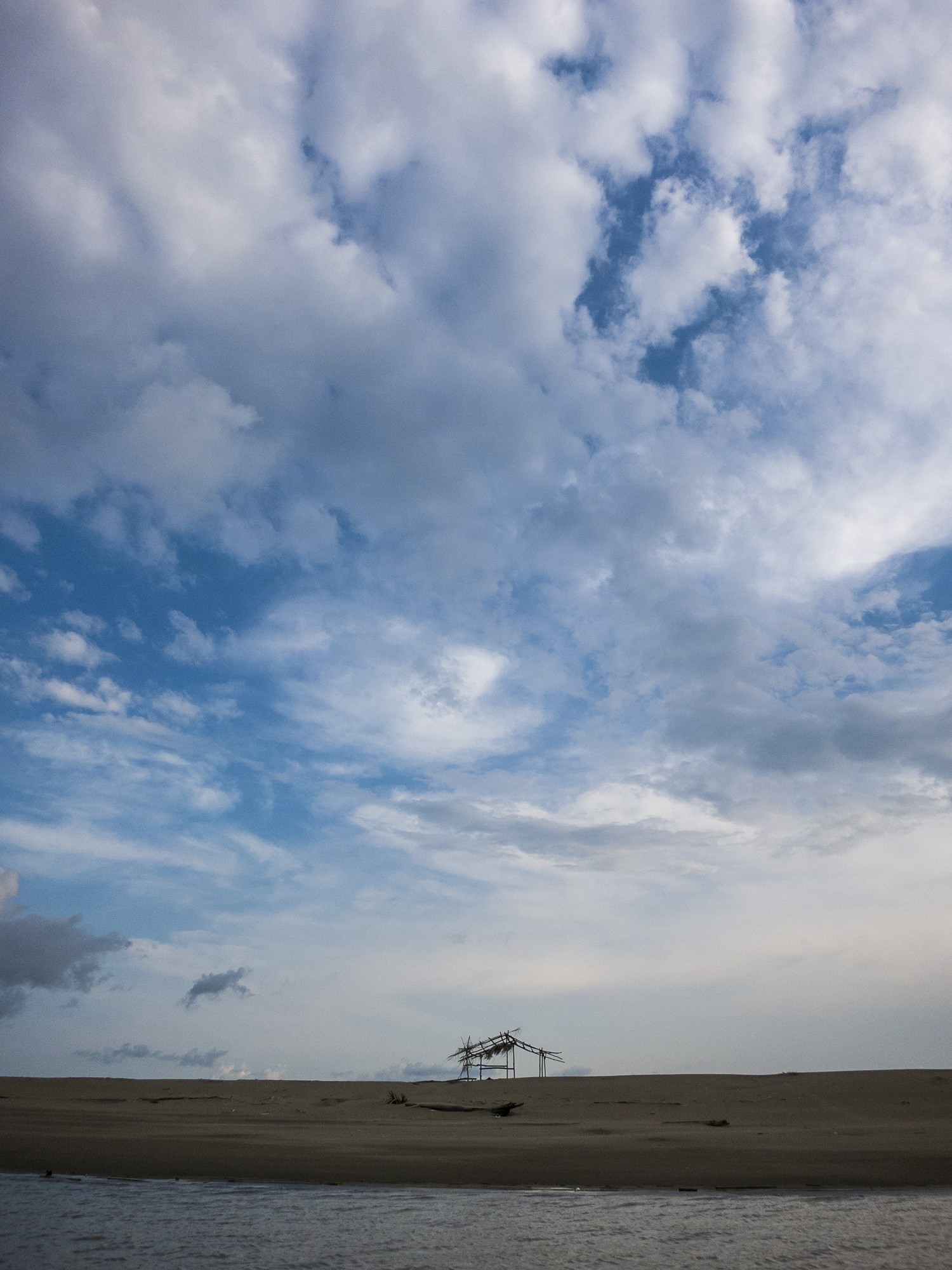It didn’t take long to put another checkpoint on my calendar; I’ll be meeting Kevin and Rachel in Medellin in December. But I don’t mind the appointment; a place to be keeps me moving. This time, the urgency drove me south, to the heart of the Amazon. Leticia is in the southeast corner of the geographical peninsula at the bottom of Colombia, pushed up against the borders of Brazil and Peru. I left my bag at the Hostel, and immediately took a boat across the Amazon for a Peruvian lunch. Later, another boat carried me a stone’s throw downstream to the Brazilian town of Tabatinga, for a bowl of Açai.
I spent the next week bouncing between towns, and getting a taste of the surrounding jungle. The highlight was an excursion to Puerto Nariño, two hours upriver by speedboat. The pace of life is different in the tropical towns along the Amazon. Few people have traditional jobs. Instead, they have countless enterprises - like fishing, selling the ice they make in their home freezer, or boating tourists around in leaky canoes - to scrape out a living. Everywhere, but especially in Puerto Nariño, where motorized vehicles are prohibited, life is decidedly “tranquilo.” As you might imagine, it was a vibe I appreciated.
I passed most of my time around Leticia with Tonin, a Venezuelan diplomat with stories from 30 years of travel and international job placement. He hardly seemed the government type. He wore sandals, shorts, and long, frizzy, gray hair, and said he was envious of my beard. He was a compassionate, soft-spoken vegetarian and life-long atheist. He would feed stray dogs with left-overs, and carry medicine for them in his back pocket. He’d pick-up and gently move any bug that was in danger, sometimes backtracking half a block to save a beetle, spider, frog, or gnat.
The last of our short-lived trio was Benjamin, an Israeli who wouldn’t stop talking about Peru. We enjoyed his company, despite his occasional naiveté and disinterest. He had a laissez-faire attitude about anything that didn’t involve a return to Iquitos, and dragged his heels for days before reluctantly making a plan to fly to Medellin. One morning, after I said something to Benjamin about the logistics of lunch, the friendly hostel owner made an astute observation. “You two are a perfect pair,” she laughed. “You can’t see past today,” she nodded towards Benjamin, then turned to me, “and you’re always thinking about the future.” I felt like I’d been found out; distilled down to a single sentence by a woman who’d known me for two days. It is a losing battle, trying to keep my mind in the moment. I wish I could say this trip has “fixed” me. Of course it hasn’t. But even the most mundane moments sometimes make this feel like a journey of self-discovery and reflection.

